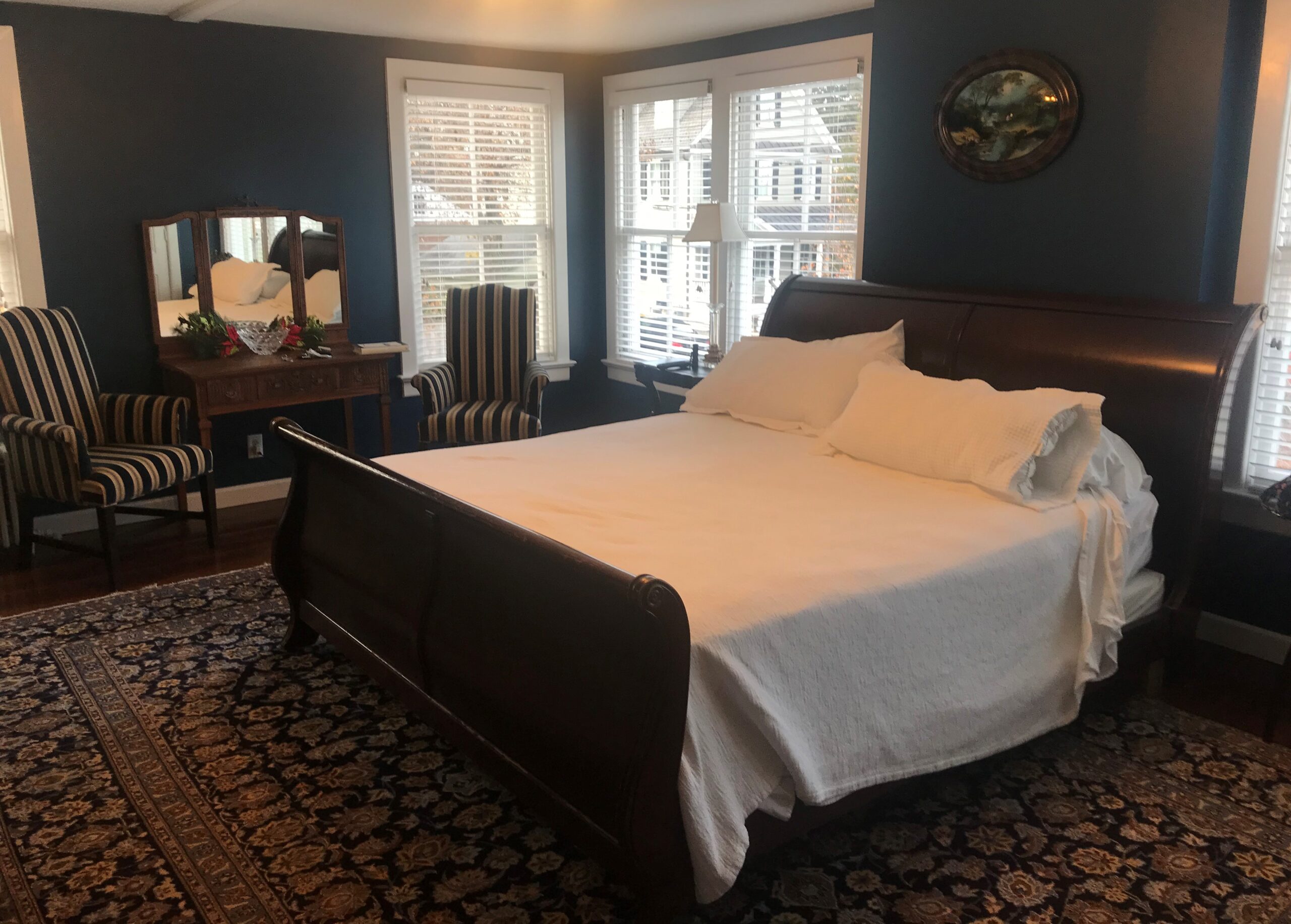The Daily Escape:

Arron Burr’s bedroom at the Arron Burr B&B – December 2021 photo by Wrongo
This week’s actual Wake Up Call will occur on Tuesday, because Wrongo and Ms. Right spent the last two nights in New Hope, PA. We stayed at the Aaron Burr House Bed and Breakfast. It’s where Aaron Burr fled after his 1804 duel with Alexander Hamilton. He seems to have stayed for about a week. Although dueling was illegal, Burr was never tried. And all charges against him were eventually dropped.
We didn’t know that our reservation was for Burr’s bedroom. It was fun because we had seen the Disney film version of the play “Hamilton” during Thanksgiving.
There’s a rumor that the place is haunted, but if so, it’s doubtful that it would be Burr’s ghost. He died in 1836 in a NYC boarding house, 32 years after he was in New Hope. Also, the current house was built in 1873 upon the foundation of the home Burr stayed in, so the ghost stories are probably just for marketing purposes.
New Hope is largely a tourist destination, although it has plenty of Revolutionary War history. Apparently, prior to George Washington’s crossing of the Delaware River, he is said to have spent the night in New Hope, although the proof for that is thin.
There’s a tourist train attraction in New Hope, the New Hope Railroad. It’s a one-hour ride that begins and ends in the center of town. On the two days we were there, the trains (which run hourly on weekends) were filled with parents and kids. The US economy must be doing really well, since the Sunday 5pm trip prices ranged from $113-$62 for adults and $103-$52 for children.
That’s today’s travel report from Pennsylvania.
Despite Wrong pushing a real column to tomorrow, here’s a wake-up tune from the sensational play, “Hamilton”. At this point in the play, America has attempted to free itself from England.
After Great Britain defeated France in the Seven Years’ War in 1763, (known as the French and Indian War in the colonies), Britain had run up a huge national debt for the time, amounting to £140 million. This was at a time when their national budget was only about £8 million.
Their solution was to tax the colonies to amortize that portion of the debt that had been used to fight in North America. First came King George III’s Proclamation of 1763 which created an invisible border from the Great Lakes to the Gulf of Mexico. That was followed by the Sugar Act of 1764, the Stamp Act of 1765, and the Townshend Acts of 1767.
The British efforts to solve the financial problems generated by the Seven Years’ War soon brought a bigger problem, trying to stave off the American Revolution. Watch Jonathan Groff as King George III singing the very funny “You’ll Be Back” to the American colonists:

I LOVE this!